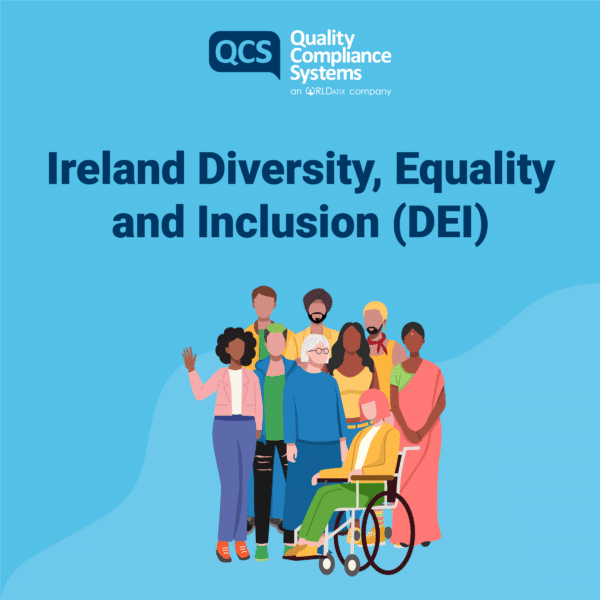It’s important that individuals and groups are treated fairly in all aspects of their work, which means that everyone providing care and support services and carrying out direct care work should be supported and be aware of DEI.
So what do these terms mean?
- Diversity means recognising and respecting others’ differences
- Equality means treating individuals and groups fairly and equally
- Inclusion means feeling valued, respected and supported
How does the law support DEI?
From a legal perspective, people in Ireland should not be adversely affected due to any of the nine grounds laid out in Irish law. These are: gender, civil status, family status, sexual orientation, religion, age, disability, race and membership of the Traveller community.
Today’s diverse workforce in Home Care is made up of many individuals, all with various characteristics or differences. These differences may be visible or invisible, and include the nine grounds, as well as others, like background, culture, personality, accent and language.
Inclusive Culture
Homecare providers can help build an inclusive culture by listening, showing respect for the perspectives of staff and of service users, and actively seeking to listen to their views.
The benefits of having an inclusive workplace policy means helping everyone feel valued and respected, encouraging people to engage and work well together.
Challenging Bias
Bias is an unfair inclination to favour or disfavour a person, group or idea based on opinions or beliefs we have formed, often without having adequate knowledge or experience. Bias often results in unfair judgements about others and even in unfair treatment.
As care professionals, it’s good practice to self-reflect on our thoughts, behaviours and attitudes and to challenge any biases we hold. We should also take opportunities to learn about different cultures, identities and experiences to broaden our understanding and challenge any stereotypical ideas we may have.
Promoting Diversity, Equality and Inclusion
Professional carers play a crucial role in promoting Diversity, Equality and Inclusion (DEI) in their daily interactions with service users and colleagues.
10 Top Tips to Support Diversity, Equality and Inclusion (DEI)
1. Educate Yourself:
Ask! Find out about different cultures, identities, and experiences. This includes understanding the unique challenges faced by the people that you work with and care for.
2. Respect Individual Preferences:
Take the time to understand and respect others’ preferences, cultural practices, and personal identities. This includes things like respecting dietary restrictions, religious practices and personal boundaries.
3. Use Inclusive Language:
Try to make sure the words you use are inclusive and respectful. Avoid assumptions about gender, sexual orientation or cultural background. If in doubt, simply ask others about what language they prefer.
4. Personalised Care Plans:
Care plans should take into account the needs, wishes and preferences of every service user. This ensures that care is tailored and respectful of individual differences.
5. Promote Autonomy:
Empower and support service users to make their own decisions and support their independence. This includes providing information in ways that are accessible and understandable to them.
6. Advocate:
Be an advocate by ensuring others’ voices are heard and their needs are met. This includes speaking up against any form of discrimination.
7. Foster an Inclusive Environment:
Take an active part in creating an environment where service users and your colleagues feel safe, respected and valued. This involves being approachable, listening actively and addressing any issues of exclusion or discrimination.
8. Reflect on Your Own Biases:
Regularly reflect on your own biases and how they might be impacting your work. Be open to challenging yourself to let go of bias and understand people’s differences better.
9. Collaborate:
Work with others to promote DEI. Share best practices and support each other in learning and development.
10. Celebrate Difference:
Recognise and celebrate the diversity among your colleagues. This could be by organising or participating in cultural events, awareness activities, training or other initiatives that highlight and honour diversity.
By integrating these tips into your daily practice, you can make a really positive impact on promoting diversity, equality, and inclusion!






